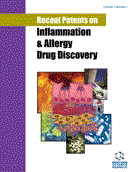Abstract
Background: Punica granatum L. (pomegranate), is a shrub mostly available in the Mediterranean Sea region. The fruits have gained the substantial attention among researchers due to their promising biological activities including anti-inflammatory, antibacterial, antidiarrheal, immune modulatory, antitumor, wound healing and antifungal that have been attributed to various constituents of seeds, bark, juice, pericarp, and leaf of this tree across the globe. The phenolic compounds of pomegranate have been documented to possess numbers of prophylactic and therapeutic utilities against various pathological infections as well as non-infectious disorders.
Objective: The current review expedites the pharmacological role of Punica granatum L. in curing elements related to infectious and non-infectious disorders.
Methods: The current review is based on literature and patents already available on various scientific databases highlighting the role of Punica granatum along with its therapeutic potentials against infectious and non-infectious disorders. The databases included under study were PubMed, Med line, PubMed Central, Science Direct and few other scientific databases. The information obtained through these diverse databases is compiled, critically interpreted and presented in the current study.
Results: Multi-dimensional beneficial application of pomegranate plant is recorded. The pomegranate seed oil has phytoestrogenic compounds and the fruit is rich in phenolic compounds with strong antioxidant activity. The fruit and bark of pomegranate are used against intestinal parasites, dysentery, and diarrhea in different animals and human models. Since the ancient time the juice and seeds had considered the best therapy for throat and heart disorders. Ellagic acid is one of the main components of pomegranate with potent antioxidant activity. Results from different studies reported that Punica granatum L or its byproducts can be used as natural food additives in human and animal nutrition in order to boost immunity, microbial safety and provide the housing environment without affecting body weight gain. In addition, Punica granatum L. byproducts can modulate immune function and gut microbiota of broiler chickens as well as reduce the odorous gas emissions from excreta. Naturally occurring polyphenols in a pomegranate can be a potential alternative medicine for the prevention of avian Colibacillosis diseases and can also be used as an intestine astringent to relieve diarrhea and enteritis in chickens.
Conclusion: The present review gives the insight towards major components of pomegranate as well as their pharmacological activities against pathological disorders. In spite of many beneficial properties of Punica granatum L., more research evidence on a molecular basis is needed to find out the molecular mechanism of action in various animals and human models to validate the usefulness of Punica granatum L. as a potent therapeutic agent.
Keywords: Animal, human, medicinal aspects, nutritional value, performance, pharmacological effects, Punica granatum L.
 79
79 19
19 1
1


















